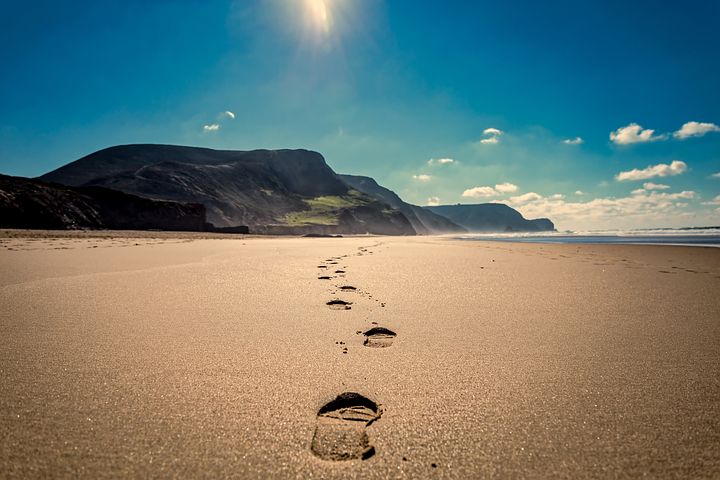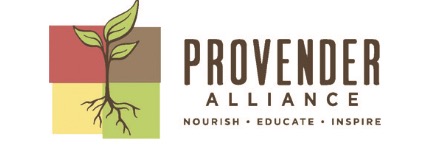“So I propose that small cumulative steps do make a difference especially when combined with those of others doing the same thing. Choosing one action to focus on makes it simple. After a while, this becomes a habit and you can move on to the next action.”
A few years ago I presented my class “Less is More: Getting to One Can of Garbage a Year” at Northwest Natural Gas over four lunch hours. At the first session, one of the participants said ,“I just don’t know if what I do matters” to which I blurted out, “You’ll feel differently at the end of this class.” Then I thought to myself, what if he doesn’t?
Given the scale of the total amount of waste generated on Earth, it is easy to understand how he can feel overwhelmed by this problem and therefore, think that whatever steps he takes to reduce his own waste could not make much difference. (According to the EPA for each can of waste put at curbside, the equivalent of 70 cans of waste result from producing that one can of garbage at the curb). So, consider these points:
• Simply not continuing a “bad” habit or practice makes a difference, just like when you stop eating junk food. Whether that means remembering to turn off the lights when they’re not needed, turning off the faucet when you’re washing dishes instead of letting the water run down the drain, or taking your own grocery bag to the store. Every behavior change counts, no matter how small. For example, it is just as easy to put recyclables into a bag intended for them as it is to put them into a bag intended for garbage. It is simple to avoid using a throw-away coffee cup by taking your own durable cup along.
• It is so important to live with integrity. We know if we’re living in line with our values. The discomfort comes when we know we’re not. We all know the feeling of satisfaction we get when we do what we know is best.
• Sometimes it’s hard to take personal responsibility for our actions. For example, it can be simpler to blame the manufacturer whose packaging isn’t recyclable. But sometimes we have to realize that we we do have the choice to choose a similar product in better packaging, or to just skip buying it entirely.
• I love the satisfaction I get when I figure out another way to avoid tossing something out! In the Portland metro area, we have so many places where items are accepted for reuse or recycling. (For some of these options, call the Metro Recycling Information Center at 503-234-3000.)
When the class ended, another participant shared this in her evaluation:
”Something I really appreciated about your approach (and a truth I’m realizing applies to many improvements- not just sustainability) is that you found a balance between striving and having grace for yourself…and in finding that balance you had/have the sustaining ability to keep making progress so that after all these years you are down to ONE can of garbage in 16 months. These changes don’t happen overnight, but living with integrity means getting on a path that leads us to a cleaner, better and more responsible way of living in the world!”
I share this here because having grace for one’s efforts is so important. We need to acknowledge the times when we make mistakes (like forgetting our reusable cup or grocery bag), but we don’t have to let that misstep trip up our efforts. We keep moving on toward our goal of lowering our impact on the planet. Awareness is good, beating oneself up is not so good.
In the “Less is More” class, we ask participants to examine and account for their past week’s garbage, then verbalize the answers to the following questions:
- What can you avoid throwing away by making one behavior change?
- How does reducing your waste make you feel? When they speak their answers aloud, they also internalize the answer, much like making a pledge to change their habits.
As one recent participant put it: “I think so many people feel like they are such a small part of things that they won’t make a difference. No matter how small I am, I can make a difference. And when I adopt a better-for- the-planet- and-living-things- on- it lifestyle, it rubs off on people around me, and maybe they will try harder to make a difference too.” – Margaret
So I propose that small cumulative steps do make a difference especially when combined with those of others doing the same thing. Choosing one action to focus on makes it simple. After forming that habit, you can move on to the next action. You’ll find that this becomes a way of living in the world. I’m also betting that you will be pleased with the results.
Check the Far West Recycling website. They accept many items that are not recyclable at curbside and have several locations in the Portland metro area. We save up our recyclables until we know we are going to be driving near one of their facilities. For information about waste reduction and recycling options in the Portland metro area, call the Recycling Information Center Monday through Saturday from 8:30 to 5:00 at 503-234-3000.
For more info: Far West Recycling website
Betty Shelley, and her husband, Jon, have filled only one 35-gallon can of garbage per year since 2006. In her three-session class, “Less is More: Getting to One Can of Garbage a Year”, Betty Shelley teaches her techniques for reducing waste.






